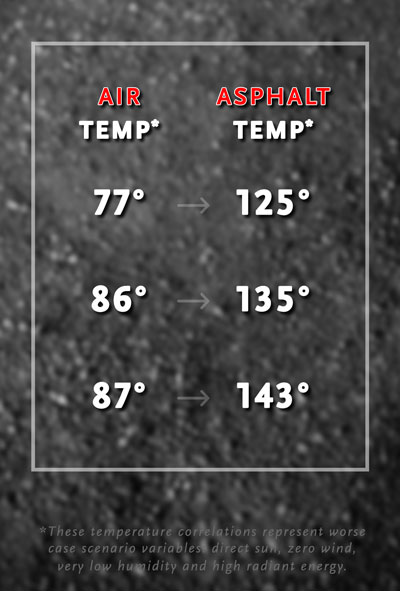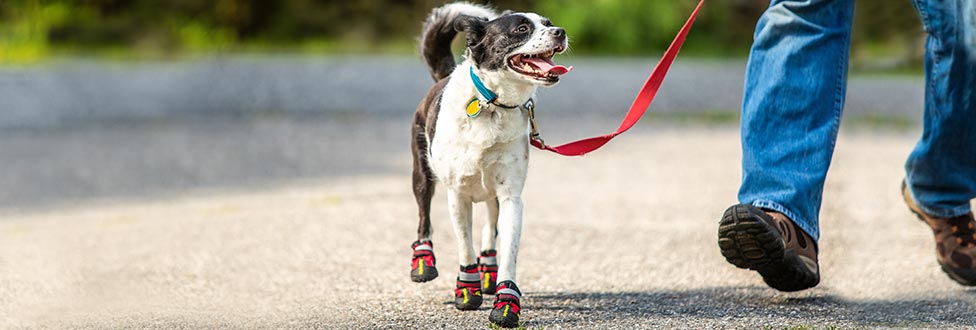Summer Safety: Protect Your Dog’s Paws!
For the past seven years the Animal Rescue League of Boston’s (ARL) Too Hot for Spot® safety campaign has warned pet owners of the dangers of leaving an animal in a hot vehicle.
But with longer days and warm temperatures, outdoor pets face additional dangers – hot surfaces which can cause severe burns to your pet’s paws.
Asphalt, concrete, or brick surfaces i.e. parking lots, sidewalks, driveways, walkways, bike trails etc… absorb the heat from the sun and surface temperatures can exceed 145 degrees!
Other surfaces include wood, metal, artificial grass, running track material, and beach sand.
Burns to the paws are incredibly painful, and can really limit your dog’s mobility, especially if all four paws are affected.
We can’t keep our pets in a bubble, but there are measures you can take to ensure your pet is safe while outdoors this summer.

- The Hand Test. The surest way to determine if a surface is to place your hand on it for 7 seconds. It’s simple, if it’s too hot for you, it’s too hot for your pet!
- Plan Outdoor Time. Always a good idea during the warm weather months anyways, but you should try and limit your dog’s exercise time to early morning or early evening when it’s coolest. Keep in mind that these hot surfaces that absorb heat stay hot long after the sun sets.
- Stay on the Grass. Grass typically stays cooler than artificial surfaces.
- Protection Gear. Booties, Socks, Paw Wax Balm, these products can add a layer of protection for your dog’s paws. Dogs do sweat through their paws so it’s important to limit the amount of time they wear protective booties. Keep in mind it will take some time for your dog to get used to having any of these on his feet.
You also want to remember that your dog’s paws may be more susceptible to burns after getting wet and signs of burns to look for include:
- Limping
- Refusing to walk
- Red or pink color change in paw pads
- Licking or chewing at the feet
- Blisters
Burns should be treated quickly, and if you discover that your pet has suffered burns on their paws, they should be taken to a veterinarian immediately.

